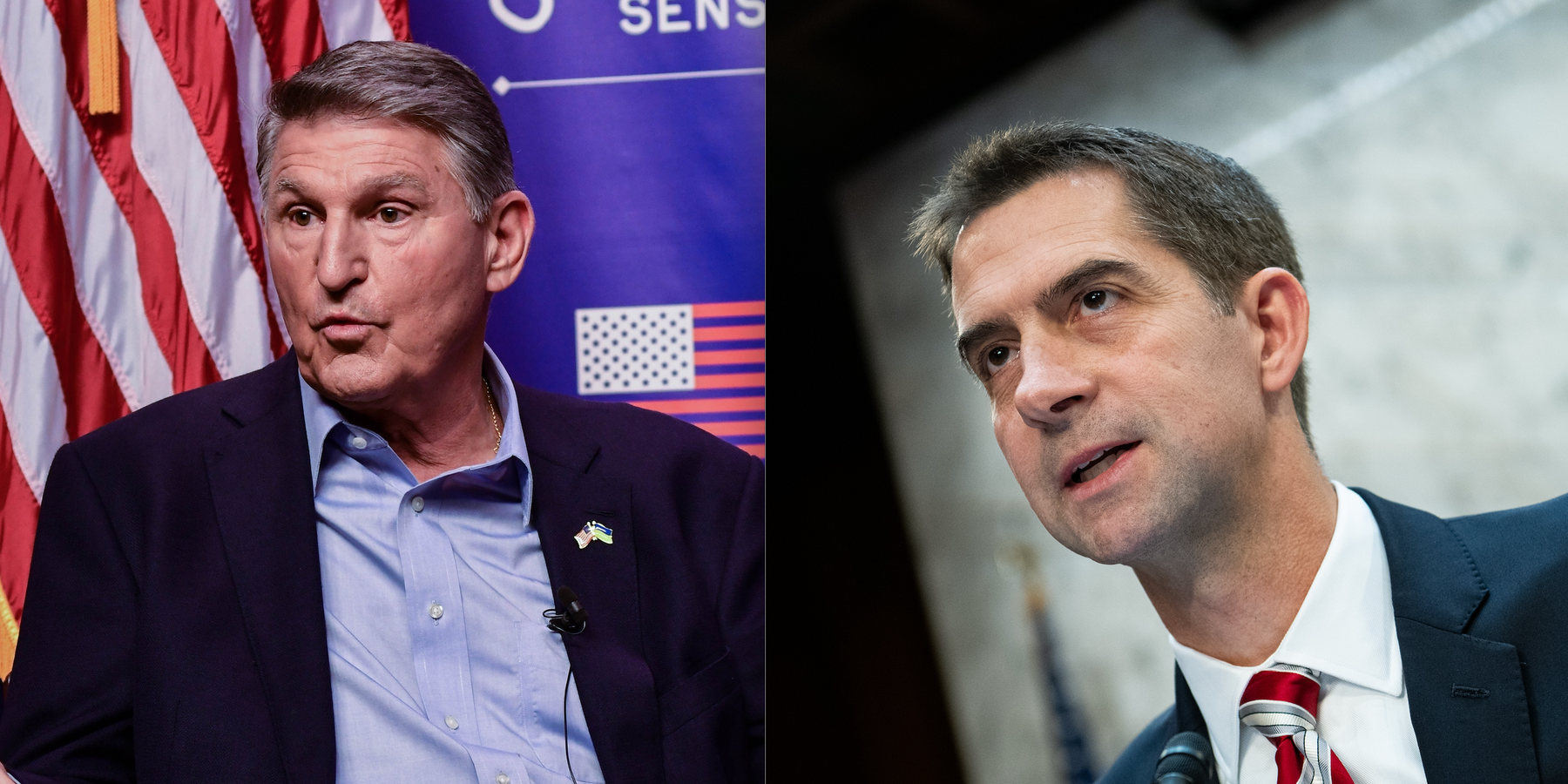The horrific atrocities perpetrated by Hamas on Israelis and the humanitarian crisis unfolding in Gaza amid Israel’s response have rightfully focused policymakers on what needs to be done to respond to the immediate crisis and prevent further tragedy. Unfortunately, some of the calls for action from Congress risk increasing humanitarian suffering and further punishing ordinary civilians. This includes reckless calls by Sen. Lindsey Graham (R-S.C.) and others to expand the war to Iran, which would further embroil Americans, Israelis, and Iranians alike in more senseless bloodshed.
Less bombastic, but also unwise, are calls from Senate Republicans, and a handful of Democrats facing challenging elections next year, for the U.S. to renege on the recent agreement that freed five Iranian-American hostages by “freezing” Iran’s access to $6 billion held in Qatari banks that can only be used for humanitarian purchases of food and medicine.
These calls reflect a fundamental misunderstanding regarding these funds and, if implemented, would likely violate exemptions in U.S. law that food, medicine, and humanitarian goods cannot be subjected to sanctions.
The bulk of the funds originate from a 2018 Trump administration decision to grant short-term waivers for South Korea to continue to purchase Iranian oil. The funds expended for those purchases were deposited in restricted accounts within South Korea. Under existing sanctions exemptions, Iran could theoretically have used these funds to purchase non-sanctioned humanitarian goods within South Korea. However, due to practical complications, including concerns by South Korea of potentially running afoul of additional U.S. sanctions, the funds in this account remained largely untouched. As a result, the Biden administration used this as leverage to get something in return — the freeing of American dual nationals from Iran.
The U.S. did not "unfreeze the funds." Rather, the U.S. allowed the money to be transferred to banks in Qatar, where they remain frozen, as they were in South Korea, for any use other than for humanitarian purchases. As a result, lawmakers who propose the funds be "frozen" are implying that they should be blocked from being used to purchase food and medicine, despite humanitarian exemptions built into U.S. law.
U.S. officials have noted that these funds are being tightly monitored by the Treasury Department and can only be expended on legitimate humanitarian goods like food and medicine. Yet partisan critics of the prisoner release rapidly seized on the horrific events in Israel to falsely claim these funds were used to finance the attacks, forcing Biden administration officials to correct the record.
This week, Secretary of State Antony Blinken made this point crystal clear, stating, “Not a single dollar from that account has actually been spent to date. And in any event, it’s very carefully and closely regulated by the Treasury Department to make sure that it’s only used for food, for medicine, for medical equipment.” This matches earlier statements clarifying that the U.S. is closely watching how the funds are spent.
As U.S. Deputy National Security Advisor Jon Finer explained in August, “the reason we can be confident” that the funds will only be used for humanitarian purchases “is that the U.S. Treasury Department has oversight over all of the funds in this account, and we'll be able to monitor any transactions that they are used for to make sure that they're used for the proper purposes…we are going to be very carefully monitoring and using very careful oversight, again, through the Treasury Department to make sure it's used the way it's intended.”
Beyond the unprecedented cancellation of humanitarian exemptions, blocking these funds would renege on yet another rare diplomatic agreement with Iran. This would render any diplomacy with Iran exceptionally difficult for Biden’s remaining time in office, including on critically important issues like hostages, regional security, and the nuclear program. The Trump administration did untold damage to U.S. credibility by reneging on the multilateral 2015 nuclear deal with Iran struck under the Obama administration. This gave hardliners in Iran the upper hand in advocating against restoring the far-reaching nonproliferation accord under Biden, helping ensure Iran’s nuclear program is on the cusp of weapons production today. As a result of this historically self-defeating foreign policy decision, a regional spillover of the conflict in Israel could now have nuclear dimensions.
Reneging on a hostage deal would double down on this error and further diminish U.S. diplomatic credibility, and Biden’s credibility in particular, with a range of adversarial nations. This would undoubtedly make it much more difficult to get Americans home safely from a host of places — including potentially Gaza. Biden has rightly made getting Americans home a priority -— including from Russia, Venezuela, Iran and other nations. It would be a major error to diminish that track record and convey a lack of seriousness that the U.S. will follow through to get its people home to safety. Diplomatic options to free wrongfully detained Americans will be even more difficult, if not fully taken off the table.
Additionally, this knee jerk reaction seems to dismiss out of hand any possibility of determining whether Iran could conceivably be an interlocutor for getting hostages freed from Hamas. George H.W. Bush administration officials credited Iran with playing a critical role in securing the eventual release of American and other foreign hostages held for years by Iran-backed Hezbollah in Lebanon. Slamming the door on Iranian funds in Qatar risks removing one of the few levers that Biden can pull to secure freedom for Americans.
While Iran offers material support for Hamas and has done so for quite some time, it appears that Tehran did not have a direct role in Hamas’s decision to launch the attack in Israel. This makes it all the more important for policymakers to take time to understand the situation and consider how rapid shifts in U.S. policy could backfire amid a fast-moving situation. While it is understandable that some policymakers would speak rashly while emotions are running high, decision-making requires clear thinking. Rather than kneejerk reactions that risk backfiring, members of Congress should give the administration space to uphold its prior agreements with Iran and leave no stone unturned to secure freedom for Americans and move toward a ceasefire and just peace.
















